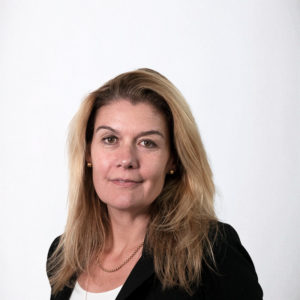Impact investing: a viable and reliable asset class
As the name suggests, impact investing is all about investing in order to generate a positive, measurable social and environmental impact alongside a financial return. Cardano seeks to achieve this through a not-for-profit foundation called Cardano Development, which specialises in financial risk management for development finance, often with a special focus on local currency financing. Set up in 2010, it is an incubator of innovative business concepts for inclusive financial services in developing countries.

Senior Project Director Fleur Henderson explains: “Most financial markets are underdeveloped, with both cash and capital constraints. The regulatory framework is underdeveloped, and there’s a lack of transparency. That makes doing business a challenge. If you live in the developed world, you tend to take financial systems for granted, because they’re just there. But that’s not the case in developing countries. At the same time, financial systems and markets are highly relevant to economic growth and prosperity. Here at Cardano Development, we are working to accelerate the development of the financial sector in developing countries, and to boost inclusive, sustainable and resilient economic growth.”
TCX: from beermat to respected brand
It all started back in 2005 with TCX (The Currency Exchange Fund). Three idealists from the world of development finance got together in an Amsterdam café to try and work out a means of ensuring that development banks did not pass on their currency risks to the weakest link in the value chain: the end users or consumers. TCX was launched two years later to manage currency risks in frontier markets by providing local currency hedging services. Today, 13 years on, it’s a well-established and highly respected brand, hedging all flows coming out of development finance institutions to make sure that local entrepreneurs can repay in their own currencies.
“TCX and our other companies are all additional to the market,” Henderson stresses. “So if a commercial player can step in, TCX will step out. The whole point of our businesses is to build the markets and then, once they can fly, to retreat. So it really is development finance.”
“The fact is that, if TCX wasn’t around, there would be much less money flowing into the developing world because the development banks would view the risk as being too big. The existence of this service means that money can be lent to a local institution, in local currency by a development bank that has hard currency on its balance sheet. So by providing the service, TCX has a massive impact.”
ILX: bridging the financing gap
A similar principle applies to ILX, another start-up. Fleur Henderson: “When the UN formulated its Sustainable Development Goals (SDGs) back in 2015, it soon became clear that there was a huge financing gap and that aid alone would not be enough to achieve all the goals. Private funding was also needed. We realised that institutional investors such as pension funds and insurance companies could play an important role here.”When we develop a business initiative, our aim is to tur
When we develop a business initiative, our aim is to turn it from an incubation into a fully-fledged business.
“The problem is that, while pension funds are of course interested in impact investing, they work with huge sums of money. Most impact investment opportunities pursued by development banks are too small (as individual investments) for institutional investors to take on. So, we needed to bridge the gap between the institutional investors in Western Europe and the development banks. That’s why ILX was created. ILX is an ‘emerging market credit fund’ that mobilises institutional capital for the SDGs in collaboration with development banks. Its impact goal is to enable investors to have a positive environmental and social impact in emerging markets.”
How does it work? “The development banks lend to companies in frontier markets. They put the loans on their balance sheets and we then take over a portion of those loans. We’re still in the start-up phase, but two medium-sized pension funds and one big pension fund in the Netherlands are already showing serious interest. One of them is currently performing due diligence on the fund.”
IMFact: providing affordable working capital for SMEs
Working capital has become a big problem during the Covid-19 pandemic. Fleur Henderson: “Small and medium-sized enterprises in the frontier markets are struggling to find affordable working capital. They’ve been badly hit by the Covid-19 crisis and can’t find an easy way of raising working capital to help their businesses survive. A number of smaller-scale initiatives at Cardano Development are now addressing this problem.”
“One of the new start-ups is called IMFact. It’s a fintech initiative that uses factoring – taking over invoice collection from its customers – to supply working capital to SMEs in frontier markets. Its goals are to provide access to working capital (banks in developing countries don’t fund SMEs) on reasonable terms – through flexible, affordable financing that does not require any form of collateral to be provided. We are starting in the medical supply chain in Kenya, because we saw that this was a sector with a tremendous need for affordable working capital.”
Pooling investments
The big question is, of course: how can an institutional investor such as a pension fund best set about impact investing? “It’s true that they’re large-scale investors,” Henderson replies. “That’s why we’re trying to pool investments: grouping together lots of smaller investments, so that a pension fund or an institutional investor can come in and invest in that big pool.”
“Interestingly, the biggest surprise for most pension funds is that the return is actually comparable to other asset classes. So it’s more a matter of the perceived risk than the actual risk. If you look closely at the data, you’ll see that it’s a commercially viable and very reliable asset class. That’s something that many pension funds aren’t aware of.”


